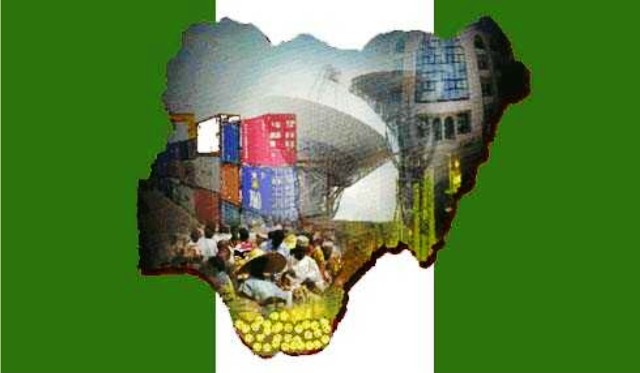Editorial
Rejigging Nigeria’s Economy

Among the three cardinal programmes of the All Progressives Congress (APC) – led Federal Government, the economy appears to be the invincible monster that has defied all known solutions provided by the President Muhammadu Buhari administration. Regrettably, it is the most important sector that holds the key to the nation’s growth and development.
Notwithstanding that the anti-graft policy of the Buhari administration is allegedly targeted at the opposition, the regime has at least made some in-roads in the area of theft recovery as well as in tackling the insurgence in the North-Eastern part of the country.
The same, however, cannot be said of the economy. To say that the country’s economy is in shambles is no gain saying. The naira which is the nation’s currency has crashed against the dollar and major currencies in the world. In truth Nigeria’s economy is in recession. The nation’s Gross Domestic Product (GDP) has plummeted. Currently, inflation is at its peak. And yet, the nation’s social infrastructure, essentially power supply is very epileptic.
Almost half into the four-year tenure of the Buhari administration, Nigerians are yet to see the real ‘change’ promised by the APC- led administration.
While The Tide is not ignorant of some policies and programmes put in place to rejig the economy, we, however, think that Buhari’s government needs to go back to the drawing board and evolve a roadmap and holistic economic blueprint that could take the economy out of the woods.
One sure way to this is to look beyond political considerations and engage experts, professionals and technocrats who are grounded in the game. The era of political patronage should go for good as two years in the life of the administration should have been enough to pacify the political heavy weights who perhaps, bankrolled the emergence of the president.
We are gladdened by the recent inauguration of a task force by the Federal Executive Council (FEC) to work out modalities to reduce the price of foodstuff in the country.
The panel, according to the acting President, Prof Yemi Osinbajo, is to among others, work out ways and means of making foodstuff available and affordable by ensuring a free- flow of agricultural products for all Nigerians.
While we commend the Federal Government for acknowledging the economic realities facing the citizenry, we charge the panel to quickly go into action by identifying cost-raising factors that come into play between farmers, the market and the final consumers.
We advise that while the government is examining the challenges facing the agricultural sector, manufacturing, mining and other critical areas of the economy must also be looked into and exploited.
In the same vein, The Tide wants to hold on to the promise by the presidency that the 2017 budget will lead the country out of the recession. We sincerely look forward to this economic salvation as soon as possible in such a way that the current skyrocketing prices of goods and services will crash and exchange rate stabilizes in no distant future.
The Tide urges the Federal Government to vigorously pursue “Market Nigeria, Buy Naija to Grow the Naira, and Made ln Nigeria” policies already championed by economists and experts to bail Nigeria out of the woes.
The need to source our procurement needs locally cannot therefore be over-emphasized. Government officials at all tiers of government must be at the forefront to re-invent the economy.
The government’s policies should emphasize diversification of the nation’s economy and promote the non-oil sectors, as well as create jobs for the youth.
As the National Assembly is fine-tuning the 2017 Appropriation bill, we believe that when it finally becomes law, the budget will indeed, lead Nigerians out of the prevailing economic abyss in which we unfortunately find ourselves.
We pray that our detractors who have already listed Nigeria as one of the countries that may experience famine in the near future, would be proved wrong. But this can only be achieved if pro-active measures are taken swiftly by the government, with the cooperation of all Nigerians.
Editorial
Resolve Rumuwoji Market Issues, Others

Editorial
As NDG Ends Season 2

Editorial
Beginning A New Dawn At RSNC

-
Politics4 days ago
2027: NIGERIANS FAULT INEC ON DIGITAL MEMBERSHIP REGISTER DIRECTIVE
-

 Environment4 days ago
Environment4 days agoLAWMA Director Says Sweeping Reforms Have Improved Waste Collection
-
Politics4 days ago
LP Crisis: Ex-NWC Member Dumps Dumps Abure Faction
-

 Politics4 days ago
Politics4 days agoUmahi Dismisses Allegations On Social Media, Insists On Projects Delivery
-

 Sports4 days ago
Sports4 days agoAbia Not Sure To Secure continental Ticket
-
Politics4 days ago
NATASHA ELECTRIC VEHICLES INITIATIVE IN KOGI CENTRAL
-
Sports4 days ago
La Liga: Yamal Records First Career Hat-trick
-
Politics4 days ago
IT’S A LIE, G-5 GOVS DIDN’T WIN ELECTION FOR TINUBU – SOWUNMI

